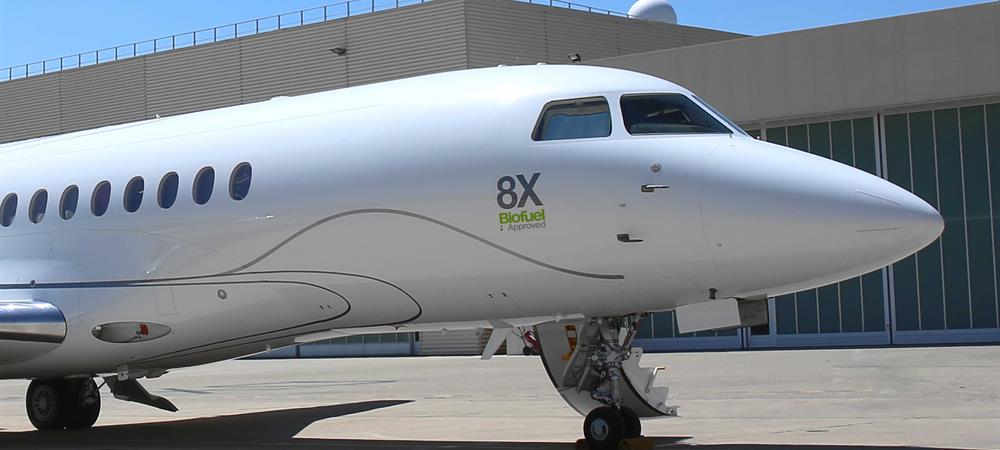If you are like me, you’re seeing a lot more electric or hybrid-electric cars on the road. This includes high performance cars from Porsche, Jaguar and others. These companies want you to know that you can enjoy driving a fast, powerful luxury vehicle and feel good about your environmental footprint.
Cars, of course, aren’t nearly as weight sensitive as aircraft, and can carry enough battery power to make conversion to electric drive trains feasible. You can go electric without really making any sacrifice in the kind of car you want. Unless you just like the deep growl of a V-8, as many of us do.
The options for reducing your carbon footprint in a jet aircraft are fewer. Electrification may be feasible someday, but not any time soon. According to Collins Aerospace, battery density will need to improve by 600 percent for even short-haul routes—up to 500 nm.
The best option for reducing your carbon footprint when you travel by business jet is first to pick a really efficient jet — a Falcon, for example. Excuse the product promotion, but it’s true that Falcons are among the most efficient jets flying.
The second thing you can do is fill it up with sustainable alternative jet fuel—SAJF. Or, rather, fill it as much as 50 percent with SAJF. All Falcons can accept internationally certified bio fuels at up to 50 percent blends with traditional Jet-A.
These are drop-in fuels. No special operating or maintenance procedures are required when using them. You can read more about them in a recent Falcon Service Advisory here. Because these biofuels are derived mainly from crops that absorb CO2, the net effect is a carbon emissions reduction of about 80 percent for the quantity of SAJF consumed. Use of these biofuels will be accepted for CORSIA (ICAO’s Carbon Offset and Reduction Scheme for International Aviation) offsets on international flights.
Dassault has flown its demo aircraft to EBACE and NBAA trade shows on SAJF blends, and we intend to conduct an increasing number of operations on biofuel blends. It appears that these fuels will become more widely available over the next few years, with prices declining as supply rises. So, it’s worth keeping an eye out for supply availability when you conduct your mission planning.
In addition, Dassault is in the process of establishing a good practices guide for Falcon pilots that will include tips for flight optimization in terms of CO2 impact. Keep an eye out for release in early 2020.
If you have questions about operating your Falcon on SAJF, please send us a query at falconpilot@dassault-aviation.com. We’ll do everything we can to help you maximize the value of your Falcon aircraft and minimize your carbon footprint. It’s all part of the Falcon customer experience.
Jean Kayanakis
Senior Vice President, Worldwide Customer Service & Service Center Network
Dassault Aviation



